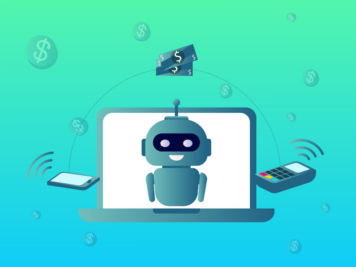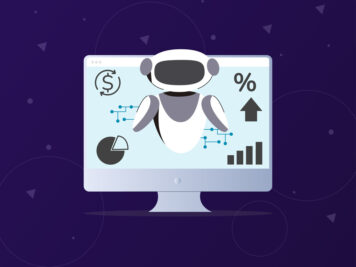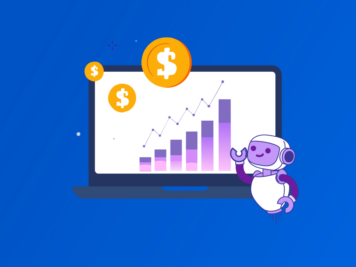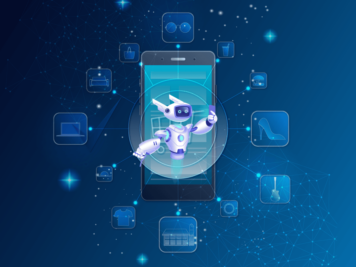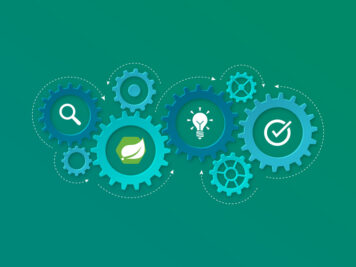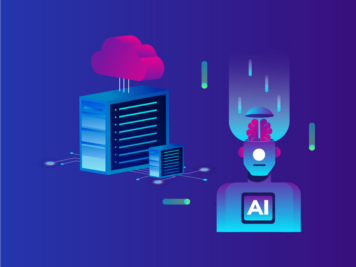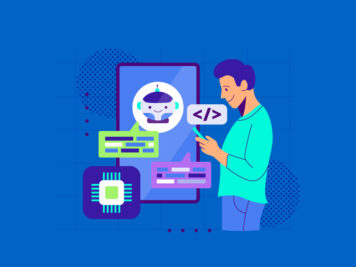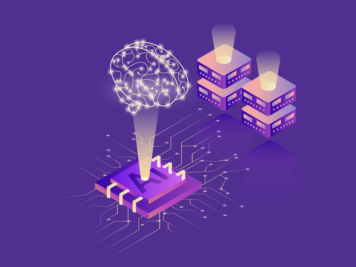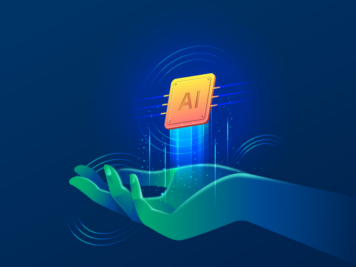Companies spend, on average, 44 days to fill an open position. The process can become even more tedious if it involves several back-and-forth movements. Businesses have realized that by reducing this number, they can become more cost-effective and add greater value to their operations. While the task may seem daunting, it is not impossible. This can be achieved by using AI in recruiting processes to increase recruiters’ efficiency in finding the right candidates with just a few clicks on a screen.
Recent developments in AI for recruiting are showing promising signs. For instance, AI has begun to address complaints about the amount of time HR professionals spend in the initial phase of resume sourcing, where they have to sift through a large number of resumes from various sources. It is playing a crucial role in removing this pain by automating the process to make it faster, more efficient and more effective.
In this article, I have discussed different challenges involved in recruitment process and how AI-based solutions can resolve them. Let’s start by understanding what AI is for recruiting.
What is the role of AI in recruiting?
From writing job descriptions, capturing attention of job seekers to onboarding a prospect, a recruiter goes through multiple phases of the recruitment cycles. The traditional recruitment process involves finding the right candidate manually. It can be time-consuming and lead to frustration. Even after completing the entire cycle, job seekers may end up accepting someone else’s offer due to delays in rolling out an offer.
AI can accelerate the process. AI tools utilize vast datasets, integrated analytics, and virtual assistants to review information provided by candidates and track the progress. They employ various parameters to assess candidate suitability. If the models are robust, these tools can also evaluate applicants in terms of emotional stability, work ethics, and other intangible factors.
LinkedIn is one great example. It has been using AI for years now to match candidates with the right jobs. Other companies have also started adopting AI to catch up.
Benefits of using AI for recruiters
AI can help recruiters focus on what matters: finding the right candidates quickly, automate the time consuming processes and close positions early.
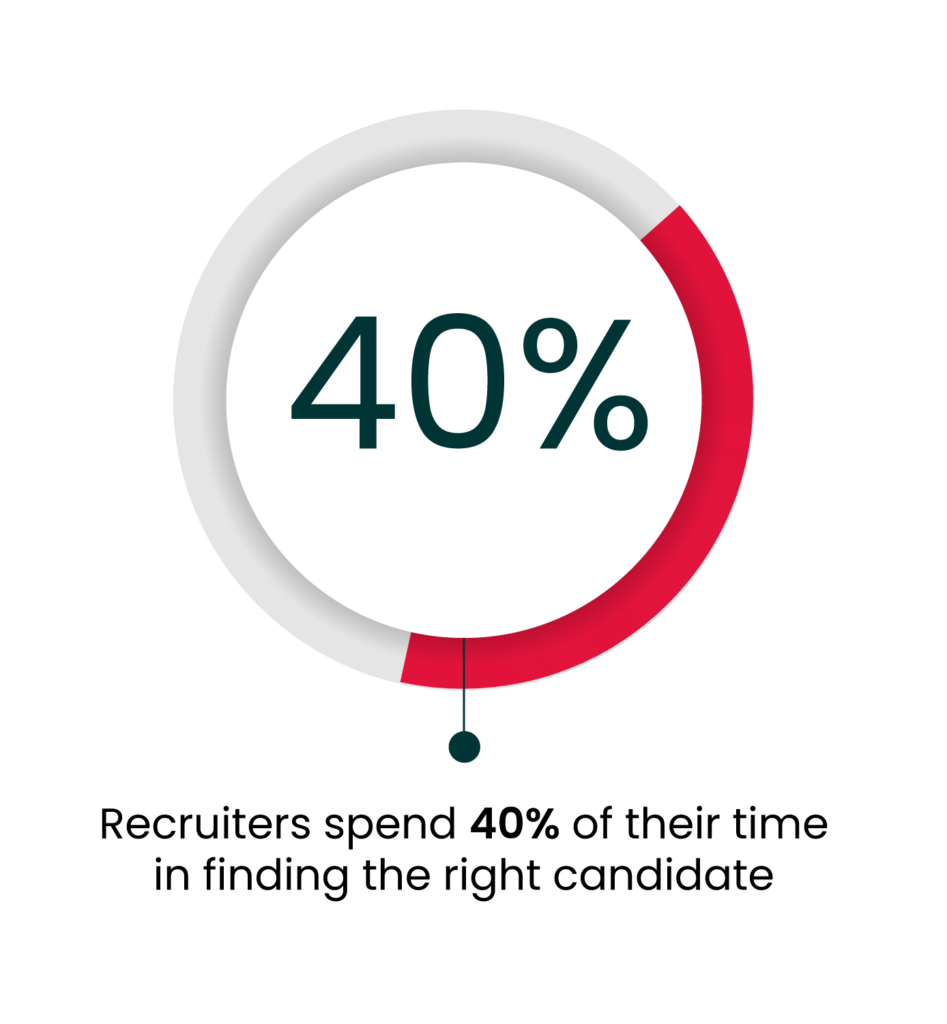
In a traditional setup, recruiters mostly get irrelevant applications.
Then they spend 40% of their time in finding the right candidate. It creates time crunch and reduces their productivity. If businesses adopt AI for recruitment, then things could get better as mentioned
Benefits of using AI for recruiters are-
- Time Efficiency: Sifting through large volumes of resumes and applications is an easy task for AI tools. It can save recruiters a significant amount of time in the initial screening process. AI algorithms can quickly find candidates with job descriptions based on their skills, qualifications, and other factors. It can ensure more accurate shortlisting and increase quality of hire.
- Faster Response: AI can share automated responses with the candidate to inform him/her about the latest updates and improve their experience with the company.
- Scalability: AI can handle recruitment drives of any size- be it 1 or many. This ability makes it perfect for businesses of all size.
- Predictive Analytics: Good prospects often stay available in the market for a very short span of time. AI can analyse historical data to understand when there is a need and open a thread to ensure recruitment happens in time.
- Reduced Human Error: HR technology powered by AI tools can minimize errors in administrative tasks, like data entry, ensuring accuracy in candidate records, and eliminate human bias in hiring.
- Cost Savings: By automating the recruitment tasks, AI can lower recruitment costs. Companies can save their advertising expenses and the time spent on manual processes.
Next let’s talk about how AI can solve the most critical recruitment challenges.
Recruitment challenges and AI solutions
Recruitment challenges can vary depending on the industry, location, and specific hiring needs of an organization. In this part, I will discuss important challenges of hiring process and share how AI can help resolve those challenges.
Major issues faced by recruiters are-
Challenge 1: Resume Screening is a slow process
Finding the best suitable profile is crucial as a wrong hire could cost companies substantial revenue loss. Zappos CEO Tony Hsieh once in an interview revealed that bad hires had cost his company over $100 million. This underscores the importance of resume screening since, in a traditional setup, it requires manual effort, which can be both error-prone and time-consuming.
What makes this phase even more decisive is the fact that this is the first step in hiring (and the first step of rejection as well). Recruiters should be very careful while selecting or rejecting. Filtering out too many resumes can mean rejecting good profiles. On the other hand, filtering out too few can lead to the wrong screening of candidates, which can waste even more time and resources.
Possible Solution: Job Description (JD)-Resume recommendation
Artificial intelligence for recruiting has an advantage. It can quickly scan through resumes and identify candidates who match the required qualifications and experience mentioned in the job description. Once done, recruiters can focus on the most promising candidates and devise strategies to convert that prospect into an employee.
Challenge 2: Hiring ratio is low
The next step in the hiring process is setting up a call or assessment to determine whether the candidate fits the role or not. Based on my own experience of developing intelligent screening software, I can attest that the hiring ratio can be as low as 1:50 for an average-level position.
Even after identifying a suitable candidate in the interview process, recruiters may not extend an offer. This can happen for multiple reasons, such as compensation mismatches or the candidate holding other offers, among others.
Possible Solution: Predictive Hiring
AI can identify previous hiring patterns and use data from past hires to predict which candidates are likely to succeed in a role or accept an offer. This predictive analysis allows us to estimate a candidate’s chances of being hired. Many corporate giants now leverage AI for their hiring processes, significantly reducing the time it takes to find suitable candidates. Furthermore, it has strengthened their ability to improve the ratio of candidates offered positions to those who accept them.
Challenge 3: High manual coordination between different parties
Manual interventions can impede and complicate the hiring process. During candidate evaluations, recruitment teams often shuttle back and forth between candidates and interview panels with various questions or answers multiple times. This can result in process delays and candidate frustration, and may lead to dropouts.
The assessment process involves multiple steps. Interview panel members have busy schedules and it often affects the process and delays the results.
Possible Solution: Automation (Assessment, Follow-ups)
AI can streamline the hiring process by scheduling interviews based on the availability of both the candidate and the interviewer, eliminating the need for manual coordination. Chatbots (using existing models like ChatGPT) can facilitate a smoother hiring process and reduce the need for manual coordination, benefiting both candidates and recruiters. Some recruiters are also utilizing social media apps like WhatsApp as chatbots for HR purposes.
Besides, AI has the potential to create assessments that provide valuable insights to hiring managers.
AI’s ability to rapidly extract and analyze data from resumes allows recruiters to target qualified candidates more effectively, reducing attrition rates.
Potential pitfalls of AI in the hiring process
Machine learning can help in many fields but there is always some trade-off between a good result and its side effects. You should address these pitfalls while modelling. The two most important pitfalls in hiring process are bias and ethics.
Bias
Machine learning is data-driven, and depending on the type of data used, it can lead to various biases, such as those related to gender, race, and religion. AI in HR recruitment can face significant challenges as a result of these biases. Let me elaborate this with an example of Amazon.
A few years back, the tech giant tried predictive hiring to hire employees using 10 years of data. But after a year of implementation, the company realized that the model is gender-biased. Given that the tech industry is predominantly male-dominated, the model had learned to favor male candidates and made hiring decisions accordingly. Amazon had to scrap the model after just one year.
Ethical Decision
AI or machine learning has intelligence but it is not general intelligence. It cannot understand behaviours and is unable to make ethical decisions. However, this is a crucial factor for recruiters.
Introducing human beings into the hiring loop is the only way out. They can make those ethical decisions and streamline the process.
Challenges while developing AI models for recruitment.
- Data Challenge:
Let me elaborate this point by using common problems that recruiters face during resume recommendation. In most cases, data is not labeled, and at best, we have information about selected or rejected candidates. Sometimes, rejected candidates do not receive feedback from interview panels.
Countering such limitations may require the development of models in an unsupervised manner and incorporation of some information from selected candidates to combine skill information from job descriptions and candidates.
- Model Challenge:
Developers often encounter challenges while developing unsupervised models, such as the difficulty of handling overlapping categories like technical (Python) and managerial (leadership) roles, where resumes or job descriptions may fall into both categories simultaneously, making traditional clustering methods like k-means less effective.
This problem can be solved through topic modeling, an unsupervised algorithm to extract topics from given documents. This approach can assist in calculating recommendation scores.
- Deployment Challenge:
During the deployment of predictions, you may encounter massive volumes of resumes for open positions. To optimize efficiency and avoid the need for daily re-runs, consider adopting an incremental approach to generate scores for resumes and job descriptions. This approach can save both time and resources.
- Performance:
Lack of updates can affect the model performance. You have to constantly monitor the model and make changes accordingly to improve its outcome.
Innovations in AI for recruiting
The segment is growing fast and is experiencing multiple innovations. Some of them are-
- Introducing physical bots
Companies have started experimenting with physical bots powered by natural language processing (NLP) and interview analytics. It can help assess a candidate’s soft skills and personality traits. At the same time, these bots can get rid of bias as they do not consider gender, age, physical, or other characteristics.
- Bridging talent gaps
AI tools can gauge talent needs based on the performance of the company and historical data. They can also map individual aspirations to select the right candidate for the role. These tools leverage data analytics and scientific testing to gain insights into individual characteristics and employ machine learning models to understand how these individuals can enhance collaboration and improve team performance.
- Implementing Robotic Processing Automation (RPA)
Companies are now looking for tools that can help them automate their entire hiring process. This is to be more efficient in terms of the productivity of candidates and ROIs. RPA can be a solution for such companies. The technology can automate any kind of hiring task and reduce the time spent on manual efforts. It can also do pre-employment checks for better hiring.
- Rerouting candidates
Businesses often hire people for multiple locations. While looking through the candidate pool, they may find people who are not suitable for one location but fit well for others. Hospitality, healthcare, and retail sectors can experience similar demands. In such cases, quick matching of the profile with the job and rerouting while keeping the candidate engaged could be a game-changer. AI tools can help with the process.
- Effective onboarding
In 2022, there was a massive surge in candidate demand. Companies were at loggerheads to get the best possible candidates. In such times, the candidate’s experience with the company during the interview process matters. AI can help recruiters with prompt query resolution to ensure candidates get to form a good impression of the company.
How AI will change the recruiter role:
Recruiters are poised to experience significant changes in their roles as the proliferation of AI increases in the sector. Their roles will now be more outcome-driven.
- Enabling Strategies:
AI’s ability, as mentioned earlier, to do repetitive tasks more efficiently can free up recruiter’s time. This will drastically change how a recruiter operates. They will now focus more on the strategic aspects of their role.
Recruiters will now put more effort into identifying who their target audience is and developing strategies to reach them. Their methods will involve employer branding, advertising, and skilled selling.
- Managing Talent Pools:
AI’s ability to find the right talents will help recruiters build talent pools. With AI, they can constantly monitor potential candidates and engage with them, helping recruiters find the right candidate quickly when needed.
- Personalizing Approaches:
AI can initiate a personalized approach to improve the joiner ratio. It can also gain a detailed understanding of job roles before approaching the right candidate, saving recruiters more time. Recruiters can dedicate that time to going deeper than a resume to find people who are aligned with the company culture and opportunities.
Conclusion
The entire hiring process can benefit from AI. It can make the process more Effective, Efficient, Fast, and Fair (E2F2). With time more and more recruitment teams will adopt AI-powered HR Technology products to streamline operations and increase recruiter productivity. The tech companies providing HR solutions should not miss the bus.
However, while implementing AI tools, you must be careful about AI’s drawbacks like biases and ethics or else you can experience some financial setback. Experts in Data Science and AI can help you avoid these problems. We have teams with AI and Data Science experts and talented DevOps engineers who can help you develop AI models as per business requirements.

